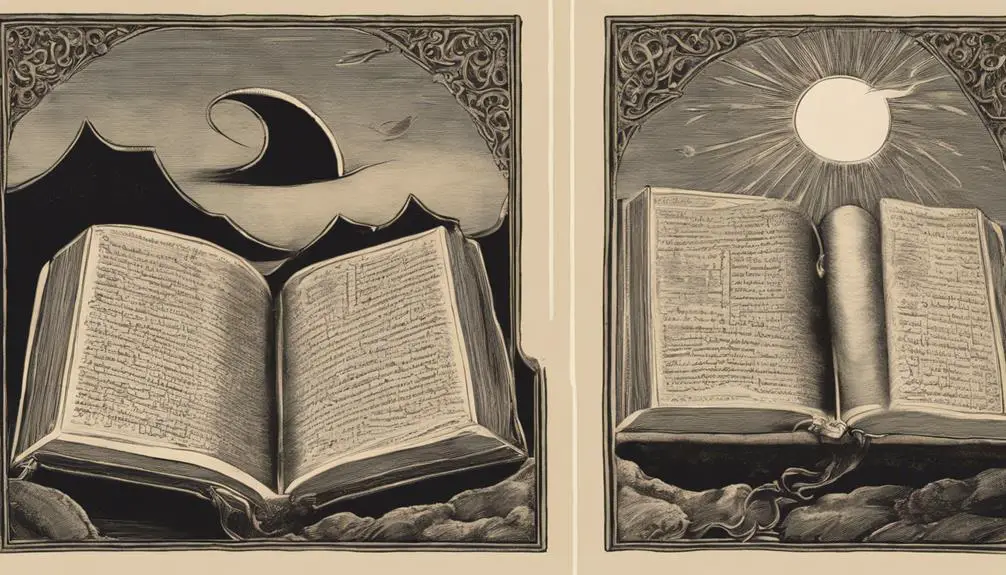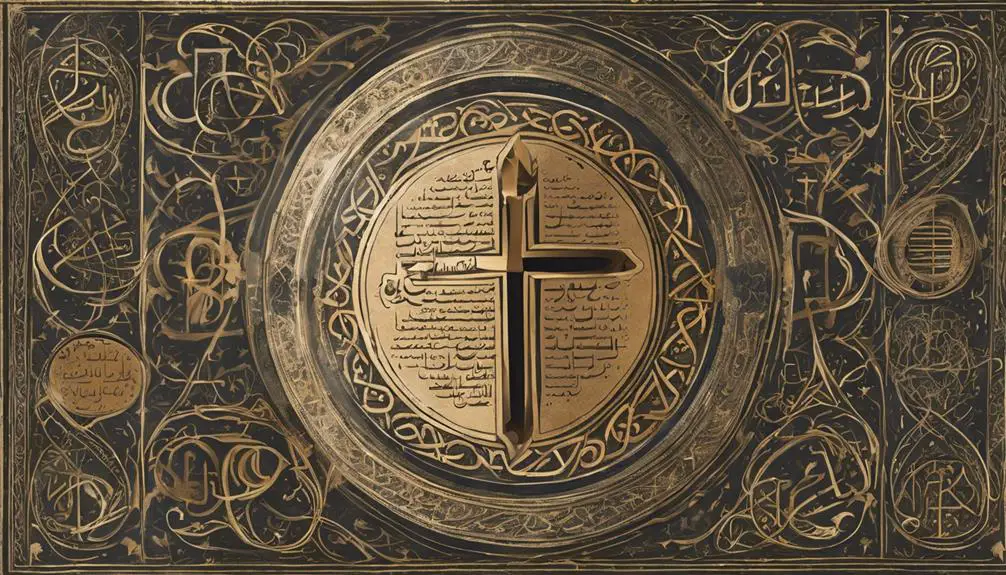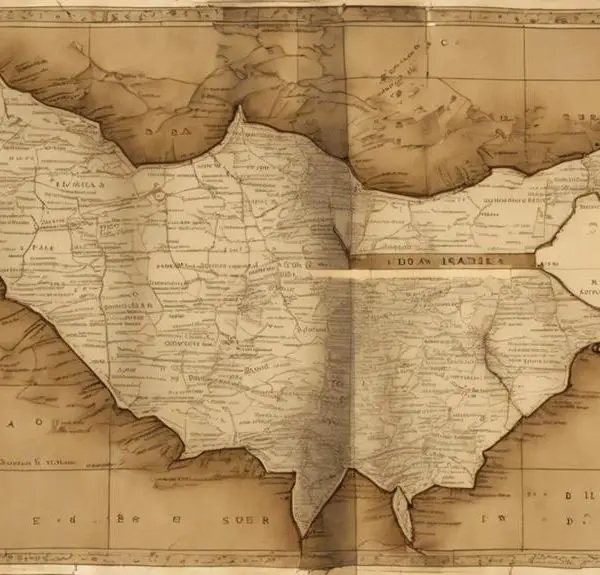Highlighting potential intersections, explore if Ramadan, Islam's holy month, finds any references within the Biblical scriptures.

Is Ramadan in the Bible
Have you ever found yourself wondering if the Islamic holy month of Ramadan is referenced in the Bible?
There's much to explore when it comes to the biblical context of fasting and its connection, if any, to Ramadan.
Let's take a stroll through the scriptures, dissect the cultural and religious crossovers, and perhaps discover some surprising connections.
After all, isn't it intriguing to think of intersections where two of the world's largest religions might meet?
Key Takeaways
- The concept of fasting is present in both the Bible and Quran, although motivations and practices differ.
- Unlike Quranic fasting during Ramadan, Biblical fasting is voluntary and has no fixed period.
- Ramadan is rooted in Islamic history and is not mentioned in the Bible, but its emphasis on self-discipline and community aligns with Christian values.
- Interfaith dialogues during Ramadan can deepen understanding of shared practices like fasting, despite their different religious origins.
Understanding the Concept of Ramadan

To truly grasp the significance of Ramadan, you need to delve into its origins, practices, and the profound spiritual meaning it holds for millions of Muslims worldwide. Rooted in Islamic traditions, Ramadan is more than an obligatory fast. It's an integral part of the Muslim faith, a time of introspection, prayer, and community.
Ramadan's significance extends beyond fasting from dawn to sunset. It's a time of spiritual purification, where you're encouraged to reflect on your actions, seek forgiveness, and strengthen your relationship with Allah. It's a month-long journey of self-discipline, self-reflection, and spiritual growth.
Respect for the sanctity of Ramadan is seen in the strict adherence to its practices. You abstain not only from food and drink but also from negative thoughts and actions. This self-control isn't merely a physical test but a spiritual one, aiming to cleanse the soul and renew one's faith.
In-depth understanding of Ramadan reveals a multifaceted religious observance, deeply rooted in Islamic traditions. It's not just about fasting but celebrating a sacred time of faith, community, and spiritual growth. Understanding its significance is key to appreciating its place in the Islamic faith.
Biblical Context of Fasting

Shifting focus to the Bible, you'll see that fasting isn't exclusive to Islam; it's an ancient practice deeply embedded in various religious traditions, including Christianity. In the Old Testament, fasting was often a sign of mourning, repentance, or seeking God's guidance. This fasting symbolism reinforces the idea of self-denial in pursuit of spiritual growth.
Now, let's delve deeper into the spiritual significance of fasting. In the New Testament, Jesus Christ himself fasted for 40 days and nights in the wilderness, reflecting a period of self-examination and spiritual preparation. This narrative underpins fasting as a form of spiritual discipline, enabling a more profound connection with the divine.
It's important to note, however, that the Bible emphasizes the importance of proper motivation in fasting. It isn't merely a physical act but a deeply spiritual one — it's about humbling oneself before God, fostering self-control, and enhancing one's spirituality. It's not about the outward act, but the inward transformation it brings about.
Comparative Analysis of Biblical and Quranic Texts

Building on our understanding of fasting in the Bible, let's now scrutinize and contrast these teachings with those found in the Quran. This analysis is crucial to our interfaith dialogue.
In both the Bible and Quran, fasting is revered as a spiritual practice to seek divine guidance and atonement. However, their approaches and interpretations differ. To illustrate this, consider the following table:
Biblical Interpretations |
Quranic Interpretations |
|---|---|
Fasting is voluntary |
Fasting during Ramadan is obligatory |
No fixed period |
Fixed period (Ramadan) |
No specified time of day |
From dawn to sunset |
No prescribed diet |
Avoiding food, drink, sexual activities |
Mainly for repentance |
For self-discipline, piety, empathy |
In the Bible, fasting often accompanies prayer during times of distress or repentance. It's a personal choice, without prescribed rules. Conversely, the Quran mandates fasting during Ramadan from dawn till dusk, abstaining from not just food and drink but also carnal desires.
It's clear that while both texts value fasting, they present different regulations and intentions. This comparative analysis helps deepen our understanding of fasting in each faith, fostering respect and enhancing our interfaith dialogue. Stick around as we trace the roots of Ramadan in our next segment.
Tracing the Roots of Ramadan

Let's now dive into the historical context of Ramadan, tracing its roots back to the time of the prophet Muhammad and exploring its significance in Islam. Ramadan origin theories suggest that it was first observed by Muslims in 610 CE during the month when the Quran was revealed to Prophet Muhammad.
The significance of the lunar calendar in Ramadan can't be overstated. The lunar calendar, which runs 11 days shorter than the solar calendar, is used to mark the start of Ramadan. It begins with the sighting of the crescent moon and ends with the sighting of the next one, signifying the start of Eid al-Fitr, the festival marking the end of Ramadan.
Moreover, the lunar calendar's significance extends beyond marking the start and end of Ramadan. It also dictates the 29 or 30 days of fasting from dawn to sunset, one of the Five Pillars of Islam.
Through this exploration, we can see how Ramadan's roots are firmly planted in the life and revelations of Prophet Muhammad, and its observance is closely tied to the phases of the moon as dictated by the lunar calendar. It's a practice steeped in religious significance, deep history, and celestial observation.
Dissecting Cultural and Religious Crossovers

Now that we've traced the roots of Ramadan, it's time to look closely at the cultural and religious crossovers that exist in its observance. It's not unusual to see elements of cultural assimilation during Ramadan, especially in multicultural societies. This is when practices of different cultures begin to blend with Islamic traditions. For example, in America, you may find Muslims breaking their fast with traditional American meals.
Simultaneously, the observance of Ramadan often sparks interfaith dialogues. These conversations provide opportunities for different religious communities to learn about and understand Ramadan's significance. They can dispel misconceptions, foster mutual respect, and encourage tolerance. These dialogues also help non-Muslims appreciate the discipline, devotion, and sacrifice that Ramadan demands from its observers.
However, this blending of cultures and religions isn't without its controversies. Some argue that it dilutes the purity of Ramadan's observance, while others believe it fosters unity and inclusivity. It's a delicate balance between respecting Islamic tenets and embracing cultural diversity. Yet, these crossovers reflect the evolving nature of religious practices within diverse societies and underline the importance of dialogue in promoting religious understanding.
Frequently Asked Questions
What Are the Health Implications of Fasting During Ramadan?
While fasting during Ramadan, you're likely to experience several health benefits. It can boost your metabolism, improve your brain function, and promote weight loss.
However, it's crucial to maintain proper hydration. Lack of water can lead to dehydration, causing headaches and fatigue. So, always remember to drink enough fluids during non-fasting hours.
With a balanced diet and careful hydration, you can reap the fasting benefits without compromising your health.
How Is the Start of Ramadan Determined Each Year?
You determine the start of Ramadan each year by observing the lunar calendar. However, moon sighting controversies often arise, leading to varied start dates in different regions. Cultural variations in observance also influence when Ramadan begins.
Some communities rely on astronomical calculations, while others stick to traditional moon sighting. Regardless of method, the aim is to unite in fasting, prayer, and reflection during this holy month.
What Are the Typical Daily Practices of a Muslim During Ramadan?
During Ramadan, you'd typically wake before dawn for Suhoor, the pre-fast meal, then abstain from eating, drinking, and certain other activities until sunset.
This is a time for spiritual growth, when you'd engage more in prayer and the reading of the Quran. You'd also participate in Ramadan charities, helping those less fortunate.
Breaking the fast at sunset, or Iftar, is often a community event, strengthening bonds with family and friends.
How Do Children, Pregnant Women, and the Elderly Observe Ramadan?
You'll find that child involvement in Ramadan varies. Often, they'll participate in a limited fast or community celebrations.
As for pregnant women, maternal adjustments are made for their health. They're not required to fast, but may choose to make up the fast at a later date.
The elderly, similar to pregnant women, aren't obligated to fast if it's detrimental to their health. They can instead offer meals to the poor as compensation.
How Does the Fasting During Ramadan Differ From the Fasting Practices of Other Religions?
When you examine the fasting during Ramadan, you'll see differences from other religious practices. Ramadan's symbolism is profound, revolving around self-discipline, empathy, and gratitude.
Fasting in Ramadan isn't just abstaining from food and drink, but also from ill deeds and thoughts. Cultural variations play a role, as the way fasting is observed can differ among Muslim communities.
In contrast, other religions may focus fasting around penance or spiritual purification.
Conclusion
In conclusion, you'll find that Ramadan isn't specifically mentioned in the Bible. However, the shared concept of fasting exists in both texts, suggesting a spiritual link.
The roots of Ramadan are deeply embedded in Islamic tradition, although some cultural and religious crossovers are evident.
It's a complex interplay of history, culture, and religious beliefs that continues to shape our understanding of these key religious observances.



Sign up